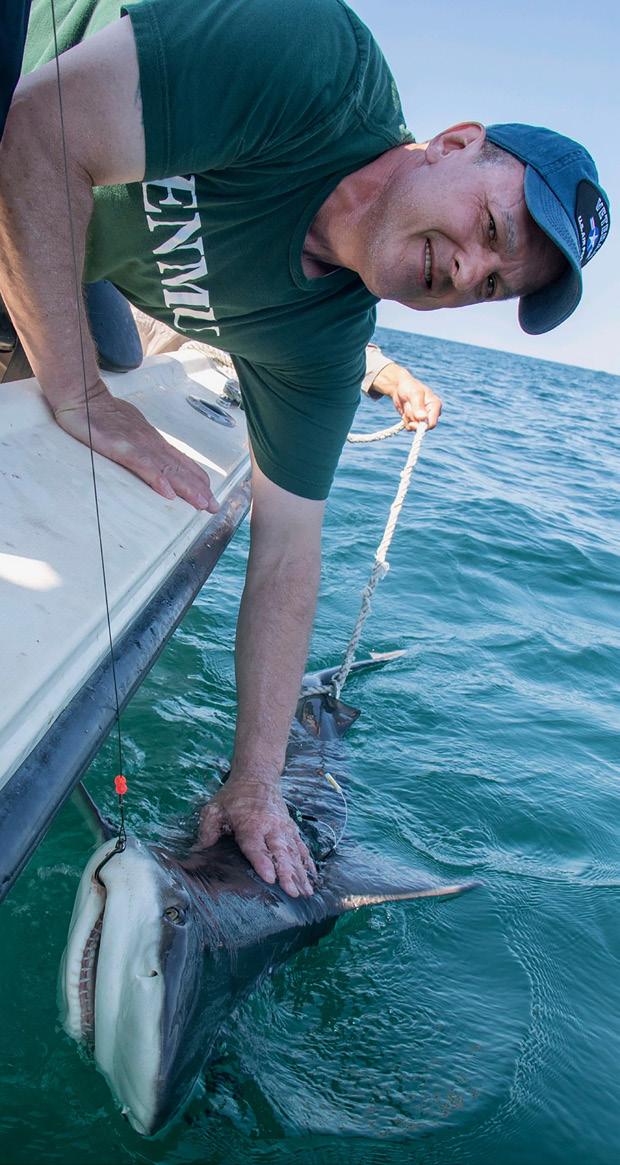
3 minute read
Dr. Petrone, Shark Angler
By Todd Fuqua
While sharks might command absolute terror inmany, they are an important subject of study for marine scientists off the coast of Long Island, New York, and ENMU professor Dr. John Petrone is among those assisting. He’s not a marine biologist, he’s an education professor, but he is an experienced angler and spends every summer on the water helping to reel in sharks for tagging.
“I was raised around water for much of my young life, growing up on Long Island,” Dr. Petrone said. “Several of my college friends from Long Island University, who were all marine science majors, became rather hard-core researchers in the field. I help them each summer.”
Among those friends is Greg Metzger, a science teacher at Southampton High School in New York and the chief coordinator for the Shark Research and Education program at the South Fork (SOFO) Natural History Museum and Nature Center. Also involved is Dr. Tobey Curtis, who is the lead scientist for the SOFO Sharks program and a researcher for the National Oceanic and Atmospheric Administration.

Dr. John Petrone touches a sandbar shark after reeling it in.
Courtesy Photo
When Dr. Petrone is on the boat, he always makes sure he wears an ENMU shirt while reeling in one of those big fish. Marine biology students from various universities are assisting them in their research, many of whom have never dealt with sharks up close. Dr. Petrone said it’s rewarding seeing them learn new things in this exciting field. Species of shark they’ve studied are spinner sharks, sand tiger sharks, white sharks and others.
“Sometimes it’s the first time they ever see a shark, and their eyes are huge,” Dr. Petrone said. “As an educator, that’s what you want to see. It’s the ‘a-ha’ moment in real-time. I started wondering why we can’t have ENMU students participate in the shark research.”

Petrone and Metzger show off a juvenile dusky shark before release.
Courtesy Photo
Dr. Petrone connected with Dr. Ken Craddock, the ENMU Biology Department chair, to begin the conversation that could see Eastern students studying sharks on the high seas. It would require some grants or other funding, as getting students to the East Coast from New Mexico and out on the boat isn’t cheap.
It might take some time, but don’t be surprised if you start seeing a few more people on that boat sporting ENMU gear in the coming summers.

Stony Brook University Ph.D. student Brittany Scannell makes an incision on a shark to insert a tracking device.
Photo Courtesy John Petrone
“It would be a dream come true if we could get ENMU students doing shark research on the Atlantic Ocean from a landlocked, Hispanic serving institution,” Dr. Petrone said. “It’s such an amazing experience and it’s so hard to describe it to someone who hasn’t seen it.“








